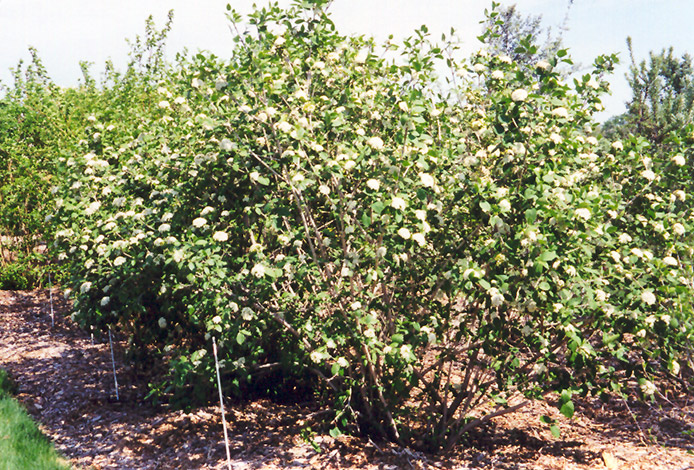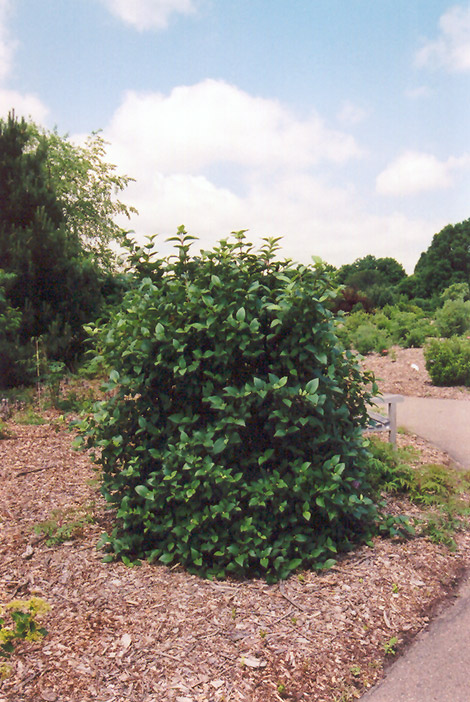
Emerald Triumph Viburnum in bloom
Emerald Triumph Viburnum in bloom
(Photo courtesy of NetPS Plant Finder)
Height: 7 feet
Spread: 7 feet
Sunlight:
![]()
![]()
Hardiness Zone: 4a
Description:
An outstanding hybrid garden shrub, featuring flat-topped clusters of creamy white flowers in spring and fruit which starts orange-red changing to black in fall; rounded and compact, tough and adaptable, a great specimen for the shrub garden
Ornamental Features
Emerald Triumph Viburnum features showy creamy white flat-top flowers at the ends of the branches in mid spring. The red fruits are held in abundance in spectacular clusters from late summer to late fall. It has dark green deciduous foliage. The fuzzy pointy leaves turn an outstanding burgundy in the fall.
Landscape Attributes
Emerald Triumph Viburnum is a multi-stemmed deciduous shrub with a more or less rounded form. Its average texture blends into the landscape, but can be balanced by one or two finer or coarser trees or shrubs for an effective composition.
This is a relatively low maintenance shrub, and should only be pruned after flowering to avoid removing any of the current season's flowers. It is a good choice for attracting birds to your yard, but is not particularly attractive to deer who tend to leave it alone in favor of tastier treats. It has no significant negative characteristics.
Emerald Triumph Viburnum is recommended for the following landscape applications;
- Accent
- Mass Planting
- Hedges/Screening
- General Garden Use
Planting & Growing
Emerald Triumph Viburnum will grow to be about 7 feet tall at maturity, with a spread of 7 feet. It has a low canopy with a typical clearance of 1 foot from the ground, and is suitable for planting under power lines. It grows at a medium rate, and under ideal conditions can be expected to live for 40 years or more.
This shrub does best in full sun to partial shade. It prefers to grow in average to moist conditions, and shouldn't be allowed to dry out. It is not particular as to soil type or pH. It is highly tolerant of urban pollution and will even thrive in inner city environments. This particular variety is an interspecific hybrid.
A NetPS Plant Finder tool
